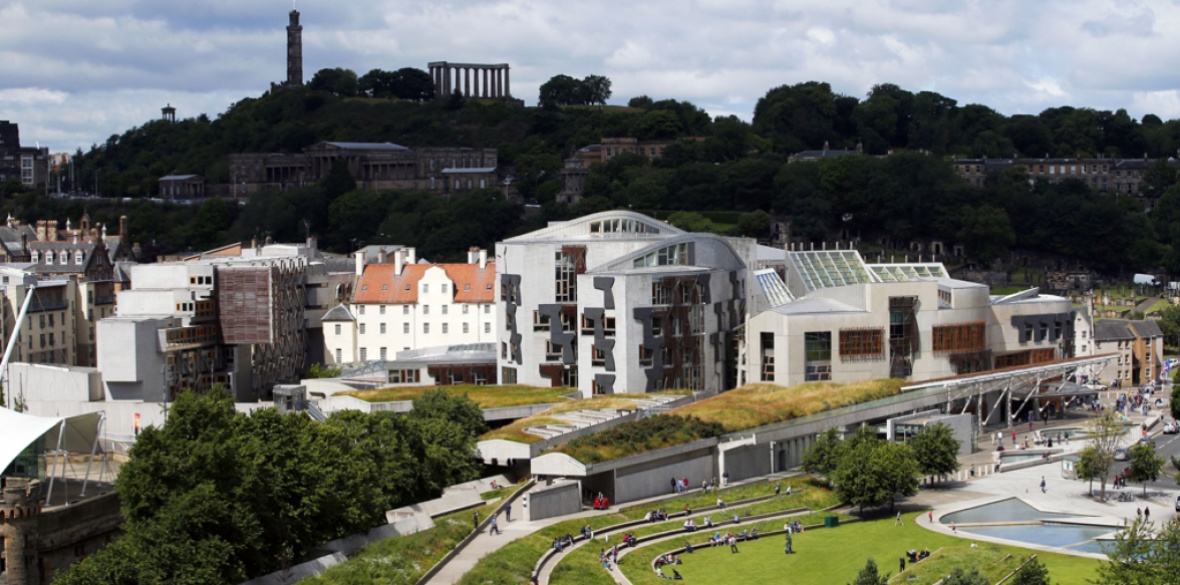This is the last article you can read this month
You can read more article this month
You can read more articles this month
Sorry your limit is up for this month
Reset on:
Please help support the Morning Star by subscribing here
STRIKINGLY absent from the Holyrood election debate was any discussion about the perilous financial state of councils in Scotland.
The diminution of debate in Scotland to the primacy of Yes v No on independence has seen this situation faced by all councils ignored in favour of polarised, petty invective.
This saw SNP MSPs pose for photo opportunities outside Maryhill public library protesting against SNP-run Glasgow City Council’s arms-length company Glasgow Life, which plans to close five libraries, 11 community halls and centres, three museums, along with 40 sports fields and gyms.
Glasgow Life can no longer afford to run these venues. Showing that they have read their Orwell they said that the venues were “not currently scheduled to reopen.”
The protest photo opportunity for the election was taken, but the opportunity to actually prevent the closures by supporting the funding demand from Cosla (the Convention of Scottish Local Authorities, representing all 32 councils) in the budget debate at Holyrood was not taken.
The lack of any link to decision-making and outcomes shows how debilitated debate has become in Scotland.
With the SNP victory in the elections, there is no sign of any change from Holyrood. Just more claims that “it’s the fault of Westminster” — just like we used to say that “the window was smashed by a big laddie who kicked the ball and ran away.”
Pressure for change will have to come from outside — from citizens, community groups, trade unions and from individual councillors standing up for their communities.
Glasgow Labour Group has led the way for Glasgow with a successful motion that seeks the funding Glasgow needs that it is unable to supply to Glasgow Life.
Glasgow is not alone, though. All councils need proper funding.
Elected on a promise of scrapping council tax, the SNP is now entering its fourth record-breaking parliamentary term without making the change it promised in 2007.
Supported by the Tories, from 2007 to 2012 council budgets were hit to make a council tax freeze possible instead.
This continued through the second term and into the third term until recently when Holyrood, under pressure from councils of all political persuasions, graciously allowed councils the power to decide the rate of increase for council tax.
But the innate conservatism of the SNP was such that once again in the final year of the third term the council tax freeze was imposed on councils, albeit with a provision of £90 million to “fully fund” the freeze.
Except it didn’t. Edinburgh had to find another £5m from council services to “fully fund” the freeze it agreed in the budget set for 2021/22. Edinburgh will not be unique in this respect.
Campaigning by Cosla in pressing the SNP on its promise of reform of how councils were funded led to the SNP majority-led government of 2012-16 deploying a classic Westminster fudge technique.
It set up a commission on “local tax reform” which produced a report in December 2015 titled Just Change.
It presented what it called “an unarguable case for change.”
A change that was expected from the third term government elected in 2016. A change that never happened despite no legislation — that’s right, no legislation — being produced in the first year of the parliament at Holyrood.
The excuse that it was a minority government was deployed despite the support for each budget produced in the last parliament by the Scottish Greens.
A servile role taken for crumbs from the table despite the strong and prominent role taken by Andy Wightman as part of the commission and then as Green MSP from 2016-21 and part of the negotiating team with the SNP in final budget outcomes.
A role that will not change as they proclaim their support as part of a self styled Yes majority for “indyref2” which ignores the predicament of councils and the responsibilities of office and power.
So what can councils expect from the fourth term? Funding cuts in the budget of 4.7 per cent in real terms from 2013/14 to 2019/20 noted by Audit Scotland in their financial overview of local government will continue.
The imposition of political priorities without fully funded resources to back it up will continue. The removal of responsibilities such as police, fire or integration joint boards (IJBs) without adequate funding will continue.
Audit Scotland even warned that due to the underfunding of the the IJBs for health and social care, an SNP creation, 22 out of 30 struggled to break even in 2019/20 or recorded deficits, which will continue to cause financial problems for Scotland’s councils.
Westminster will be blamed, but Holyrood has the powers to resolve this. It will take political pressure from outside Holyrood for the Just Change that Scotland’s councils and its citizens need to halt the cuts that current policies impose. Over to you, citizens.
Gordon Munro is a Labour councillor for Leith ward.











